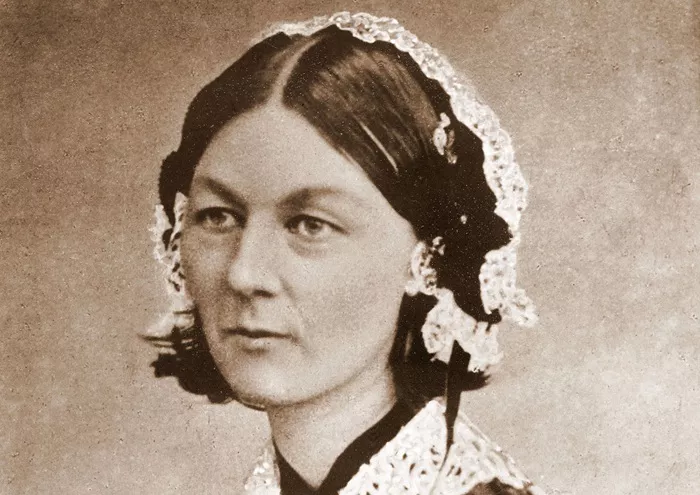In a new literary portrayal, Florence Nightingale — long hailed as the founder of modern nursing — is rendered not as the saintly figure immortalized in poems and popular myth, but as a complex, aging woman grappling with memory, mortality, and the cost of care.
Author Laura Elvery’s debut novel, Nightingale, published by the University of Queensland Press, presents a reimagined perspective on the famed Crimean War nurse. Instead of focusing on Nightingale’s public accomplishments, the novel explores the psychological and physical toll of caregiving — not only for Nightingale but also for those around her.
A Humanized Icon
For more than a century, Florence Nightingale has stood as a symbol of compassion and reform. Immortalized in Henry Wadsworth Longfellow’s 1857 poem Santa Filomena as a paragon of “heroic womanhood,” Nightingale is often remembered as “the lady with the lamp,” tirelessly tending to wounded soldiers.
But Nightingale offers a different view. Opening with an epigraph from T.S. Eliot’s Little Gidding, Elvery’s novel meditates on memory, identity, and the lingering imprint of care. The story unfolds across two timelines: in 1910, as a 90-year-old Nightingale nears death in her London home, and in the 1850s, during her pivotal work in Scutari (modern-day Istanbul) at the height of the Crimean War.
This dual structure allows Elvery to draw out the contrast between the public legacy and private reality of a woman whose contributions to hygiene, hospital design, and statistical analysis transformed 19th-century medicine.
Scenes of Suffering and Care
The novel’s strongest sections are set in the squalid war hospitals of Scutari, where the young nurse Jean Frawley — a fictional creation — works under Nightingale’s supervision. Through Jean’s eyes, readers witness the harrowing conditions that Nightingale and her team faced: overcrowded corridors, inadequate supplies, and constant death.
“Whimpering men lay on stuffed sacks on every side of every corridor, keeping company with the rats, the roaches, the maggots,” Jean observes.
Elvery, an acclaimed short-story writer known for Ordinary Matter and Trick of the Light, brings her signature lyrical style to these scenes. Her visceral descriptions — of blood, chloroform, vermin, and exhaustion — avoid gratuitous detail, instead conveying the intimate, grueling reality of caregiving in crisis.
Rather than providing a straightforward historical account, Elvery delves into the inner lives of her characters. Nightingale, seen through both her memories and others’ perceptions, emerges as a brilliant yet complicated figure — revered, feared, and occasionally resented. Her ethos is distilled in a series of instructions she recalls near the end of her life:
“Use a clear, firm voice so the patient hears you the first time. Do not ask a patient to turn their head towards you. Let the light in. Ventilate the room. Clean the utensils. Change the sheets yourself and do it quickly, without comment.”
These directives reflect not only Nightingale’s commitment to discipline and efficiency but also her enduring belief that death often results not from injury, but from neglect and poor hygiene.
A Subplot of Longing
Alongside these vivid hospital scenes, Nightingale weaves in a subplot involving Jean Frawley and a soldier named Silas Bradley. Meeting in Marseilles on their way to the front, the two share a fleeting connection that lingers throughout the narrative.
While this romantic element offers emotional depth, it occasionally detracts from the novel’s more grounded and powerful focus on caregiving. Jean’s longing for Silas feels disproportionately intense, especially when juxtaposed with the stark realism of her nursing work.
Still, their relationship introduces key questions about trauma, memory, and how lives are shaped by the experience of care — both given and received.
The Cost of Being Remembered
As Jean visits a Crimean War memorial in London years after the conflict, she gazes upon a statue of a cloaked woman. Expecting to feel recognition, she instead sees only unfamiliarity. “Perhaps it was a goddess,” she thinks, noting the “haloes of leaves that circled her wrists.”
This moment captures a central theme of the novel: the dissonance between lived experience and the way history enshrines it. Who is remembered — and how — becomes a recurring question.
Elvery resists the urge to sanctify Nightingale. Instead, she presents her as a woman shaped by illness, ambition, exhaustion, and doubt. By shifting the novel’s emotional center to Jean rather than Florence herself, Nightingale explores the often-invisible emotional labor behind nursing, the collective effort rather than the singular legend.
A Timely Reflection on Care
In a time when global crises have placed unprecedented demands on healthcare systems, Elvery’s novel is especially resonant. It asks what it means to care — not just medically, but emotionally — and what is lost or obscured when those who do this work are turned into symbols.
“They asked the girls to kiss them, to write for them, to tell them jokes […] One soldier asked Jean to breathe in time with him.”
These small, intimate moments underscore the deep humanity at the heart of Nightingale. Florence Nightingale’s achievements are not diminished by this portrayal; rather, they are deepened by a fuller recognition of the messy, often painful work that lies beneath the image of “the lady with the lamp.”
Elvery’s Nightingale is not just a historical novel — it’s a meditation on what endures, what fades, and what it truly means to care.
Disclosure Statement
Caitlin Macdonald is a PhD candidate at the University of Sydney. She does not work for, consult, own shares in or receive funding from any company or organization that would benefit from this article, and has disclosed no relevant affiliations beyond her academic appointment.
About the Author
Caitlin Macdonald is a PhD candidate in the Faculty of Arts and Social Sciences at the University of Sydney. She researches literature, history, and narrative representation.
Publisher Information
This article was originally published by The Conversation AU and is republished here under a Creative Commons license.

